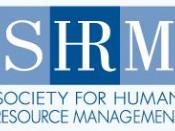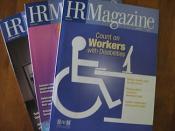Introduction
Stone (1995, p. 4) stressed that the focus of human resource management (HRM) is to manage people within the employer-employee relationship, and that it involves the productive utilization of people. It can also be further describe as having a 'hard' and a 'soft' version. However, such a broad definition is unable to distinguish HRM from its 'predecessor' - Personnel Management, and the elasticity in the use of the term HRM makes the development of a general theory for HRM seems impossible. However, Boxall (1996) say that HRM is unique in that it seeks to strategically integrate the human resource function within the overall corporate strategy. Having said that, we'll look at the modern role of HRM in today's context and briefly discuss some of the differences, reasons and recommendations to move from Personnel to HRM from a strategic point of view.
Personnel Management and Human Resource Management
Beardwell, Claydon and Holden (2007) identify five comparative models of personnel management and HRM, which are the planning perspective, people management perspective, employment relations perspective, structure/systems perspective, role perspective.
In personnel management, the planning perspective is marginal to corporate plans; in people management perspective, the people are viewed as a variable cost, subject to compliance and organisational control; in the employment relations perspective, personnel management accepts that self-interest dominates at work and that conflicts of interests among stakeholders are inevitable; in the structure/systems perspective, it imposes that control of staff are from the top and control of information flows downwards; in the role perspective, it is specialised, professional and driven by personnel specialists.
Within the HRM tradition, HRM is strategy-focused and central to the corporate plan in the planning perspective. In the people management perspective, HRM views people as social capital capable of being developed and committed at work. In the employment...


